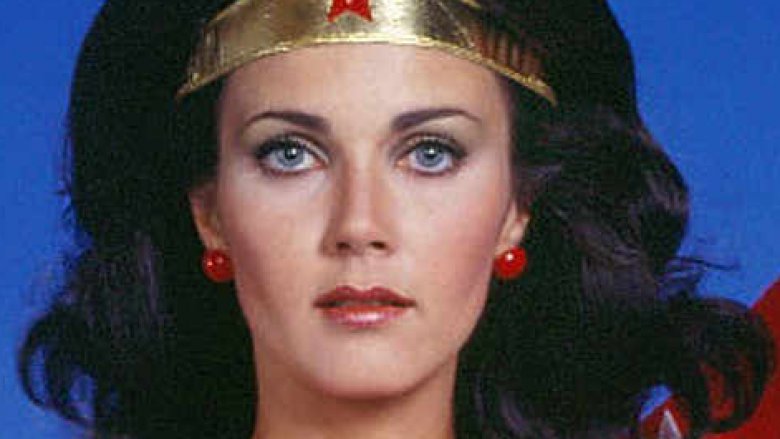Lynda Carter Responds To James Cameron's Controversial Wonder Woman Comments
The original Wonder Woman is fed up.
Lynda Carter, who played Diana Prince in the 1970s Wonder Woman television series, took to Facebook Thursday to discuss the controversial comments filmmaker James Cameron made about this summer's Wonder Woman movie, led by Gal Gadot and directed by Patty Jenkins.
"To James Cameron, STOP dissing WW," wrote Carter. "You poor soul. Perhaps you do not understand the character. I most certainly do. Like all women, we are more than the sum of our parts. Your thuggish jabs at a brilliant director, Patty Jenkins, are ill-advised. This movie was spot-on. Gal Gadot was great. I know, Mr. Cameron—I have embodied this character for more than 40 years. So, STOP IT."
To refresh your memory on what exactly Cameron said that Carter is referencing, let's run through his the original remarks he made in August. "All of the self-congratulatory back-patting Hollywood's been doing over Wonder Woman has been so misguided," Cameron told The Guardian. "She's an objectified icon, and it's just male Hollywood doing the same old thing! I'm not saying I didn't like the movie but, to me, it's a step backwards."
The filmmaker then turned to his own female character, Sarah Connor (played by Linda Hamilton in The Terminator and The Terminator 2: Judgement Day), as an example of what a strong female action protagonist should be. Cameron implied that other character creators can learn from Sarah Connor, especially female superheroes, as she represents the epitome of greatness. He also suggested that because Gadot's Wonder Woman is both beautiful and strong, her looks somehow negate her power.
"Sarah Connor was not a beauty icon," Cameron said. "She was strong, she was troubled, she was a terrible mother, and she earned the respect of the audience through pure grit. And to me, [the benefit of characters like Sarah] is so obvious. I mean, half the audience is female!"
He then seemed to hint that he has grown weary of attempting to depict strong female character on screen in his films. "There are many women in power in Hollywood and they do get to guide and shape what films get made... I can't account for it... how many times do I have to demonstrate the same thing over again? I feel like I'm shouting in a wind tunnel!"
Carter's response is likely directed at Cameron's most recent statements about Wonder Woman, which he gave earlier this week. He doubled down to state that he doesn't regret what he said or the controversy his words caused, and that he "still stands by" saying Gadot was playing an "objectified icon" in portraying Wonder Woman.
"I mean, [Gal Gadot] was Miss Israel, and she was wearing a kind of bustier costume that was very form-fitting. She's absolutely drop-dead gorgeous. To me, that's not breaking ground," Cameron said.
He continued on, discussing that Carter's iteration of Wonder Woman wasn't sexual at all, but was all about angst, will, and determination. In saying that, Cameron implied that Gadot's version wasn't. "[Carter's Wonder Woman] was crazy, she was complicated. She wasn't there to be liked or ogled, but she was central, and the audience loved her by the end of the film," said Cameron. "So as much as I applaud Patty directing the film and Hollywood, uh, 'letting' a woman direct a major action franchise, I didn't think there was anything groundbreaking in Wonder Woman."
Though Cameron didn't take back anything he said, he did clarify one point (though it was still connected to the "sexual" aspects of the film). "They think they have to appeal to 18-year-old males or 14-year-old males, whatever it is... I like the fact that, sexually, she had the upper hand with the male character, which I thought was fun," he said.
Director Jenkins responded shortly after the original August comments, writing, "James Cameron's inability to understand what Wonder Woman is, or stands for, to women all over the world is unsurprising as, though he is a great filmmaker, he is not a woman. If women have to always be hard, tough, and troubled to be strong, and we aren't free to be multidimensional or celebrate an icon of women everywhere because she is attractive and loving, then we haven't come very far, have we?"
Regardless of how Cameron (or any other naysayers) feel about Wonder Woman, the character is here to stay. We'll next see her on the silver screen in Justice League this November, and again in her solo sequel film set for release on December 13, 2019.
